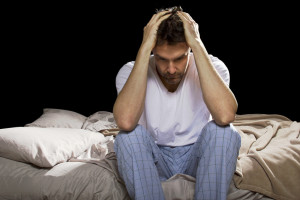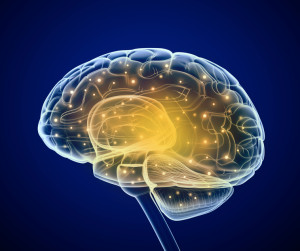Contributor: W. Travis Stewart, LPC, NCC writer for Addiction Hope
What is Insomnia?
 The most basic definition of insomnia is the inability to fall or stay asleep. More specifically, according to the American Academy of Sleep Medicine, insomnia has the following features: [1]
The most basic definition of insomnia is the inability to fall or stay asleep. More specifically, according to the American Academy of Sleep Medicine, insomnia has the following features: [1]
- You have a hard time initiating sleep.
- You struggle to maintain sleep, waking up frequently during the night.
- You tend to wake up too early and are unable to go back to sleep.
- Your sleep is nonrestorative or of poor quality.
Beyond these basic features, insomnia can also include adjustment insomnia, behavioral insomnia of childhood, idiopathic insomnia, inadequate sleep hygiene, insomnia due to drug or substance, medical condition or mental disorder, paradoxical insomnia and psychophisiological insomnia.[2]
 Also, according to the AASM, about 30 percent of adults have symptoms of insomnia, about 10 percent of adults have insomnia that is severe enough to cause daytime consequences and less than 10 percent of adults are likely to have chronic insomnia.
Also, according to the AASM, about 30 percent of adults have symptoms of insomnia, about 10 percent of adults have insomnia that is severe enough to cause daytime consequences and less than 10 percent of adults are likely to have chronic insomnia.
The National Heart, Lung and Blood Institute identifies three primary areas of life impacted by significant lack of sleep. These areas are performance, mood and health. Poor sleep affects our performance in areas such as thinking, reacting, creating memories, completing tasks and problem-solving. Mood is impacted negatively by lack of sleep and increases irritability, poor relationships and depression. And insufficient sleep can increase chances of high blood-pressure, heart disease and other medical conditions.
What is Brain Restorative Sleep?
 According to Dr. Len Matheson, “The adult brain has about 100 billion neurons, each with between 1,000 and 30,000 connections to other neurons, plus about 900 billion support cells. It completes 38,000 trillion operations per second, hundreds of times faster than a super-computer. It is constantly changing and updating itself in response to experience. It needs brain-restorative sleep to:
According to Dr. Len Matheson, “The adult brain has about 100 billion neurons, each with between 1,000 and 30,000 connections to other neurons, plus about 900 billion support cells. It completes 38,000 trillion operations per second, hundreds of times faster than a super-computer. It is constantly changing and updating itself in response to experience. It needs brain-restorative sleep to:
- Consolidate Information – BRS helps a process called neuroconsolidation. Much of the development of new neural networks occurs while you sleep.
- Restore Brain Energy Reserves – Your brain uses 20 to 25 percent of your total body energy. Energy sources are recharged while you sleep. Without BRS, neurons will become fatigued and malfunction.
- Dissipate Waste and Excess Hormones – Neurons are designed to be with you for your whole life but they need to be protected. They can be harmed by a build-up of waste products and excess hormones, such as cortisol.” [3]
Does Ambien help with Insomnia?
Ambien (generic name zolpidem) is a sedative (also called a hypnotic). It impacts the chemicals in your brain which may cause you to not fall asleep or stay asleep. It is one of the most commonly prescribed medications for insomnia and comes in an immediate release form which helps you fall asleep when you first go to bed and in an extended release pill designed to help you stay asleep.
There can be side-effects of Ambien similar to other sleep aid medications. These can include engaging in activity while you are asleep and not recalling these activities when you wake up. These include driving, eating, walking, talking on the phone or engaging in sexual activity. If this happens you should stop taking Ambien immediately and talk with your doctor. [4]
Is Ambien habit forming?
 There is also concern that Ambien is addictive and that users can become dependent on the medication. In other words, you will not be able to fall asleep without using the medication.
There is also concern that Ambien is addictive and that users can become dependent on the medication. In other words, you will not be able to fall asleep without using the medication.
This happens, in part, because the users of sleep-aid medication begin to rely on the medication, rather than making life-style and cognitive changes to help them sleep better.
A recent study from the University of Pennsylvania School of Medicine showed some results that may support this idea. The report in the Journal of Sleep Medicine suggests that “the roughly nine million Americans who rely on prescription sleeping pills to treat chronic insomnia may be able to get relief from as little as half of the drugs, and may even be helped by taking placebos in the treatment plan.” [5] The finding regarding placebos suggests the possibility that the mere act of taking a pill may have psychological and physiological affects on the body and brain that increase sleep. For this reason, those suffering with chronic insomnia should pursue other approaches to better sleep prior to using medication. One such approach gaining more attention is Cognitive Behavioral Therapy.
How does Cognitive Behavioral Therapy (CBT) help with insomnia?
CBT is a well-established and evidence-based therapy that has been used for a wide variety of psychological issues. CBT for insomnia has several key elements according to the National Sleep Foundation: [6]
- Sleep Restriction - this limits the times of day when you are allowed to go to sleep and wake up. This helps eliminate napping or sleeping when your body is not best prepared for it.
- Stimulus Control Instructions - this element helps control internal or external factors which may be making it more difficult to sleep such as limiting time in your bed to only sleep and sex and avoiding watching TV in bed.
- Sleep Hygiene - this includes preparing your bedroom to be conducive to sleep by setting the temperature cooler and darkening the room. It also involves cutting back on caffeine and other foods later in the day which may be too stimulating. [7]
Another important factor that CBT therapy for sleep problems assesses is your thoughts and attitudes toward sleep. This involves identifying, challenging and changes thoughts you might have when getting into bed. If you lie down at night with the thought, “I’m never going to fall asleep” then your anxiety will build and your brain will begin to experience higher anxiety about a lack of sleep. A therapist trained in sleep issues, CBT or anxiety work can help you learn to identify these disruptive thoughts and redirect them into healthier attitudes resulting in better sleep without the use of sleep-aids like Ambien.
Community Discussion – Share your thoughts here!
About the Author
Travis Stewart earned a Master of Arts in Counseling (2001) and a Master of Arts in Theological Studies (2003), both from Covenant Seminary in St. Louis, MO. Travis is a Licensed Professional Counselor in the State of Missouri and a writer for Eating Disorder Hope and Addiction Hope.
References:
- http://www.aasmnet.org/resources/factsheets/insomnia.pdf
- http://www.aasmnet.org/resources/factsheets/insomnia.pdf
- http://www.faithfulbrain.com/2015/08/brain-restorative-sleep/
- http://www.drugs.com/ambien.html
- http://www.eurekalert.org/pub_releases/2015-08/uops-cis080315.php
- http://sleepfoundation.org/sleep-news/cognitive-behavioral-therapy-insomnia
- For an extensive list of healthy sleep hygiene habits, visit http://www.faithfulbrain.com/2015/08/brain-restorative-sleep/
The opinions and views of our guest contributors are shared to provide a broad perspective of addictions and co-occurring disorders. These are not necessarily the views of Addiction Hope, but an effort to offer a discussion of various issues by different concerned individuals. We at Addiction Hope understand that addictions result from a combination of environmental and genetic factors. If you or a loved one are suffering from an addiction, please know that there is hope for you, and seek immediate professional help.
Last Updated & Reviewed By: Jacquelyn Ekern, MS, LPC on September 4, 2015. Published on AddictionHope.com
